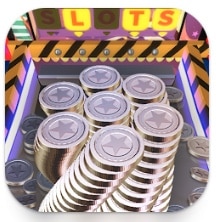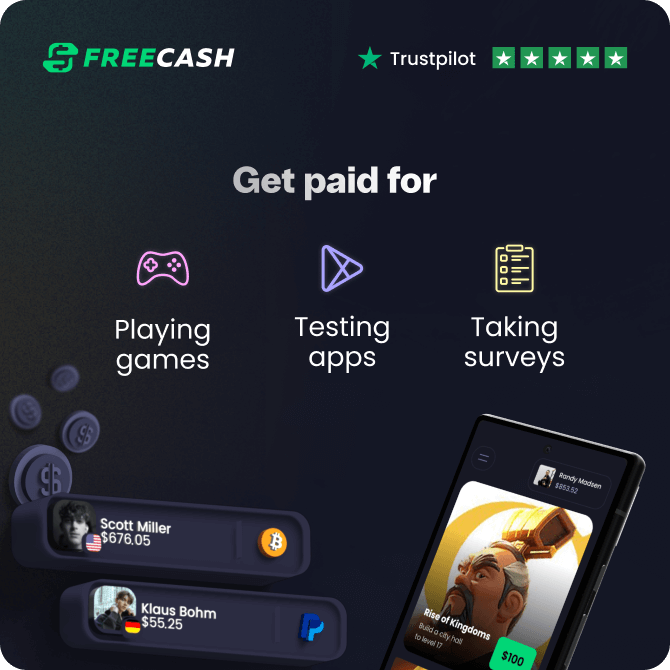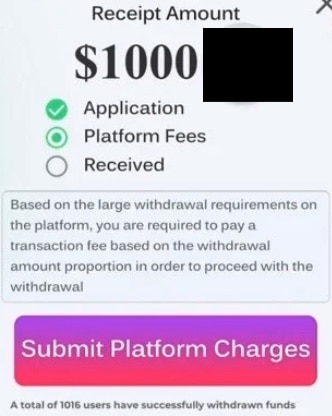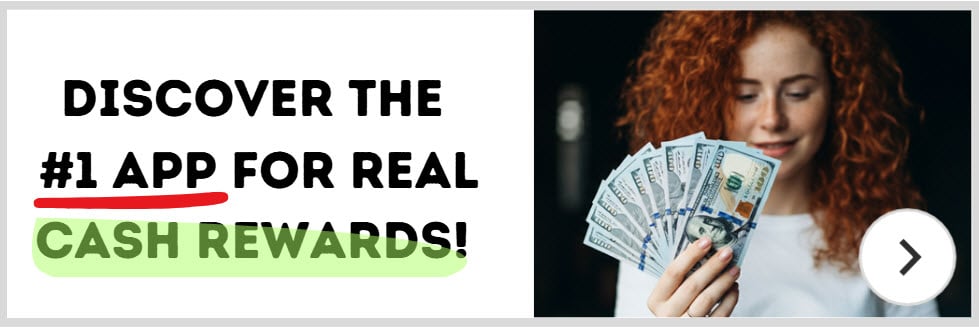 Welcome to my Coin Lucky Drop review!
Welcome to my Coin Lucky Drop review!
Have you been lured into playing Coin Lucky Drop, dreaming of pocketing hundreds or even thousands of dollars? Pause before you tap that next coin.
This app isn’t the golden ticket it claims to be—it’s a trap, and you need to know why.
Developed by Sabri Hadded from Tunisia, Coin Lucky Drop is part of a growing wave of so-called “free reward apps” that promise life-changing payouts for minimal effort.
With over 1 million installs on the Play Store, its popularity is staggering, especially when you uncover how it operates.
What’s even more infuriating? Despite deceiving countless users, this app remains live and thriving on the Play Store, while content creators exposing these fake games face demonetization, video takedowns, or platform strikes.
So, what’s really going on with Coin Lucky Drop? Is it a legitimate game, a cash cow, or a cleverly disguised scam? Spoiler: It’s the latter, and it’s worse than you think.
Before we reveal this app, let’s discover my favorite app that pays for playing games!
What Is Coin Lucky Drop?
At first glance, Coin Lucky Drop appears to be a harmless mobile coin pusher game.
You tap the screen, coins drop onto a platform, and if they push other coins off the edge, you supposedly earn points or rewards.
Wrapped in vibrant colors, arcade sounds, and relentless promises of riches, it’s designed to hook you from the start.
But dig deeper, and the red flags are glaring. The app’s advertising is nothing short of outrageous, flaunting fake testimonials like:
- “Housewives don’t need jobs anymore! Earn $900 in just 3 hours!”
- “I got $150 on CashApp, then another $80 instantly!”
- “Cover your family’s daily expenses with Coin Lucky Drop!”
Some ads even claim you can earn over $2,000 a month or win up to $200 an hour.
These are impossible promises, crafted to prey on people desperate for quick cash online. It’s not just misleading—it’s predatory, and Sabri Hadded knows exactly what he’s doing.
How Does Coin Lucky Drop Work?
Once you launch the app, it prompts you to tap the screen. A coin drops, you tap again, and coins begin to stack.
Some fall off the platform, and your on-screen cash balance skyrockets—shockingly fast.
Within a minute, you’ve “earned” hundreds of dollars. A pop-up flashes: “Bulldozer Ready! Tap to Use.”
You comply, more coins drop, and suddenly your balance hits $1,000.
Then comes the suspicious part: the app urges you to cash out. It presents official-looking payout options—PayPal, Visa, CashApp, Mastercard, and even something called “airtm”.

This reward platform is going viral! Cash out via PayPal, Visa, Gift Cards, and in-game currencies - Click here to find out how to generate an extra $10+ per day!
You select PayPal, enter your email address, and everything seems legitimate. But that’s where the trap snaps shut.
After entering your details, a message appears: “Due to the large withdrawal amount, a transaction fee is required to proceed.”

There it is—the scam’s core.
They demand real money to “unlock” your fake winnings. Worse, they redirect you to what looks like the official PayPal website, prompting you to pay nearly $10 to access your $1,000 payout.
It’s a blatant lie, and Hadded’s team is laughing all the way to the bank.
The scheme is crystal clear: they’re not earning revenue through ads or gameplay challenges. Their entire business model hinges on tricking users into paying these fraudulent fees.
Some players, lured by the promise of a $1,000 payout for just $10, take the bait. However, once you pay, the money disappears, and you receive nothing in return.
It’s digital theft, plain and straightforward, orchestrated by a developer who prioritizes greed over ethics.
Update: A Shift in Monetization
It’s been months since I first reviewed Coin Lucky Drop, and I feel compelled to add an update. Recent reports suggest the app may have shifted its monetization strategy.
Instead of demanding a transaction fee, it now reportedly forces users to watch a specific number of ads to “unlock” their payouts.
This change doesn’t make it any less scammy—it’s just a new way to waste your time and exploit your trust.
Whether it’s fees or forced ads, the endgame remains the same: you’ll never see a dime of those promised rewards. The game has evolved, but Sabri Hadded’s deceptive tactics haven’t.
What If You’ve Already Paid?
If you fell for it and paid through PayPal, there’s a glimmer of hope.
Contact PayPal support immediately and request a refund, explaining that you were a victim of a scam.
In many cases, they can reverse the transaction. If you used a debit card or another payment method, recovery is trickier, as banks often take longer to resolve such disputes, with no guaranteed outcome. Act fast and don’t delay.
More critically, avoid entering personal details into apps like this. Even if the withdrawal screen looks secure, you have no idea how Hadded and his team are handling your data.
Are they storing your email? Tracking your behavior? Selling your information?
The risks outweigh any potential reward, and with a developer this unscrupulous, you’re gambling with your privacy.
No Ads, Just Theft
Here’s another disturbing twist: unlike most fake reward apps that bombard you with ads to generate revenue, Coin Lucky Drop is eerily ad-free.
That’s not a good thing—it’s a massive red flag. Most scam apps rely on endless video ads to earn money from advertisers, but not this one.
There are no interruptions, no pop-up offers, just a smooth path to their real goal: convincing you to pay that fake withdrawal fee (or, now, to watch a barrage of ads).
Their monetization strategy is brutally simple—digital pickpocketing. If just 1% of their million-plus users fall for the $10 fee (or waste hours on ads), that’s $100,000 in profit—untraceable, and stolen from people who often can’t afford to lose it.
Sabri Hadded isn’t running a game; he’s running a con, and he’s doing it with alarming efficiency.
Where’s the Accountability?
It’s infuriating that an app this blatantly deceptive remains live on the Play Store, while creators who expose these scams are punished.
YouTube, TikTok, and other platforms routinely demonetize or remove videos calling out apps like Coin Lucky Drop, citing vague “policy violations.”
Meanwhile, Hadded’s app continues to mislead users, rake in profits, and face zero consequences.
Developers like Sabri Hadded are exploiting the Play Store’s lax oversight, hiding behind polished apps while peddling lies and greed.
The app may look professional, but it’s a hollow shell built on deception. Hadded’s complete disregard for ethics is maddening, and his ability to keep this app running unchecked is a slap in the face to every user who’s been duped.
Final Verdict: Run, Don’t Walk, Away
Coin Lucky Drop isn’t a reward app—it’s a meticulously crafted fake cash game. You won’t earn $1,000, $200, or even $1.
Instead, you’ll waste time, risk your personal data, and potentially lose real money chasing fake prizes.
Whether it’s demanding transaction fees or forcing you to watch endless ads, the app’s sole purpose is to exploit your trust.
Sabri Hadded and his team should be ashamed, but they’re too busy counting their ill-gotten gains. The app’s false marketing, fake cash balances, and predatory monetization tactics are designed to deceive, and they’re succeeding at an alarming scale.
If you’ve installed Coin Lucky Drop, uninstall it immediately. Report it on the Play Store and warn your friends and family.
App stores and social media platforms have failed to protect us, so it’s up to us to stay vigilant, share the truth, and dismantle this toxic reward game industry.
Don’t let digital scammers like Hadded win—stay smart, stay skeptical, and keep your wallet far away from Coin Lucky Drop.


